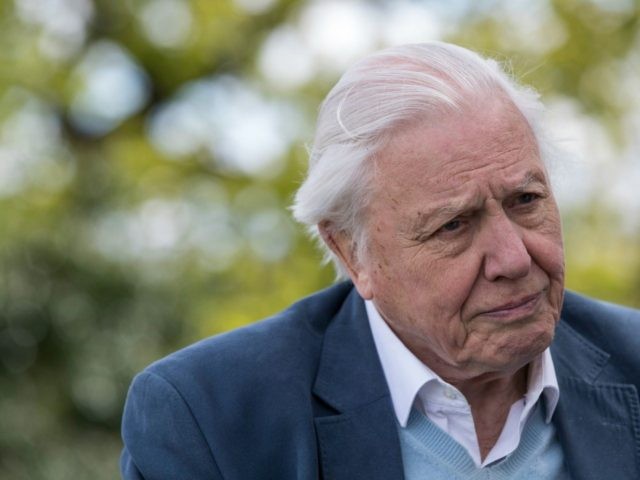Sir David Attenborough has decided to ditch the finger-wagging and the doom-mongering from his next wildlife TV documentary series, Dynasties. Viewers, he has finally realised, find it a turn off.
Attenborough, 92, told the Observer (sister newspaper of the Guardian):
“We do have a problem. Every time the bell rings, every time that image [of a threatened animal] comes up, do you say ‘remember, they are in danger’? How often do you say this without becoming a real turn-off? It would be irresponsible to ignore it, but equally I believe we have a responsibility to make programmes that look at all the rest of the aspects and not just this one.”
This will come as a relief to the many viewers who respect Attenborough as the pre-eminent TV naturalist but are bothered by the relentless green propaganda.
Sometimes he raises important issues, such as the pollution of the oceans with plastics. Too often, though, his points are tendentious and unscientific: a regurgitation of fashionable green pieties which are unsupported by real world data.
One of the most egregious examples was his promotion in his last series Blue Planet II of the thoroughly discredited ‘ocean acidification’ theory.
Attenborough claimed: “If the temperature rises up by two degrees and the acidity by a measurable amount, lots of species of coral will die out. Quite what happens then is anybody’s guess. But it won’t be good.”
A lot of huckster activists on the climate alarmism gravy train have built tenuous careers promoting this nonsense. But no serious scientist believes it, for ocean acidification is just another environmentalist scare narrative.
As Matt Ridley noted:
The most dishonest sequence in the series was when Attenborough watched shells dissolving in a tank of acid, to a soundtrack of fizzing noises, and was told by Professor Chris Langdon that although this was “more dramatic than what’s happening in the oceans”, nonetheless “the shells and the reefs are really truly dissolving”.
This is highly misleading in several different ways. Was it carbonic acid, or another acid? The reduction in alkalinity will get nowhere near neutral, let alone actual acidity, even by the end of the 22nd century, so “dissolving” is false, let alone happening now. The changes in ocean pH expected even by the end of this century are minuscule compared with what was shown in that tank, and by comparison with the daily and seasonal changes that an average reef experiences. (Coral bleaching, a different issue, is more serious, but more temporary.)
A 2010 analysis of 372 studies of 44 different marine species found that the world’s marine fauna is “more resistant to ocean acidification than suggested by pessimistic predictions” and that it “may not be the widespread problem conjured into the 21st century”.
Attenborough also got it completely wrong about walruses, which he made out to be much more endangered than they are.
As Paul Homewood testily pointed out:
Apparently tonight’s episode concerns itself with walruses, who (you guessed) are all “going to die” because of “melting Arctic ice”.
Below is the part of the programme’s introduction:
Ocean currents move heat around our planet and maintain a climate favourable for life. But our ocean system, in relative equilibrium for millennia, is changing at a worrying rate. Deep in the polar north, we meet walrus mothers and their newborn calves, searching for an ice floe to rest on. But with rising temperatures, summer sea ice is retreating – their battles to survive are becoming ever harder. As we begin to understand the true complexity of the lives of our ocean creatures, so do we recognise the fragility of their home.
It’s a pity the doddering old idiot, David Attenborough, could not be bothered to check the facts with the U.S. Fish and Wildlife Service, who issued this press release earlier this month (my bold):
The U.S. Fish and Wildlife Service has found that the Pacific walrus does not require protection as threatened or endangered under the Endangered Species Act (ESA). The finding follows a comprehensive review and analysis of the best available scientific information concerning the species, as well as local and traditional ecological knowledge of Alaska Native peoples.
Yes, perhaps it is a bit rude to call the doyen of wildlife documentary makers a “doddering old idiot”. Or, indeed, as others have been wont to describe him, a “whispery-voiced, gorilla-hugging Malthusian.”
On the other hand, it is surely a dangerous business when such a well-loved figure with such global prestige allows himself – whether wittingly or otherwise – to become the pawn of green propagandists.
From overfishing to depletion of the water tables, from the tremendous ecological damage being done by wind turbines to destruction of rainforest to create ‘biofuels’, there are more than enough genuine environmental problems that need addressing.
But when Attenborough strays outside his zone of expertise and simply regurgitates untrue scare stories dreamed up by green activists, both his credibility and his viewers’ patience are likely to be sorely tested.
It has taken him rather a long time to appreciate this point. Still, better late than never.

COMMENTS
Please let us know if you're having issues with commenting.